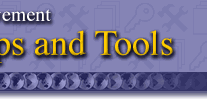|
 |
To describe the change in performance and the extent to which interventions
have closed the performance gaps |
 |
Data summary tables, graphs and descriptions |
This step includes:
- Gathering and organizing data in a systematic way to reduce sources of bias
and increase validity
- Discerning patterns, trends and comparisons from qualitative and quantitative
data
- Linking cost and results data to have a retrospective Cost and Results Analysis (CRA)
- Involving client and stakeholders in interpreting data
- Employing standards to arrive at conclusions.
For the evaluation of effects, the evaluation team will typically conduct a
data-gathering exercise similar to the collection of baseline data to describe
actual performance. The consistency of sampling tools and indicators will help
contrast the levels of performance before and after the interventions and determine
whether there have been demonstrable changes. If the evaluation design uses
a control group, the team will compare changes in the intervention group with
changes (if any) in the control group to arrive at net effects (i.e., changes
in the intervention group minus changes in the control group over a similar
period of time).
|

